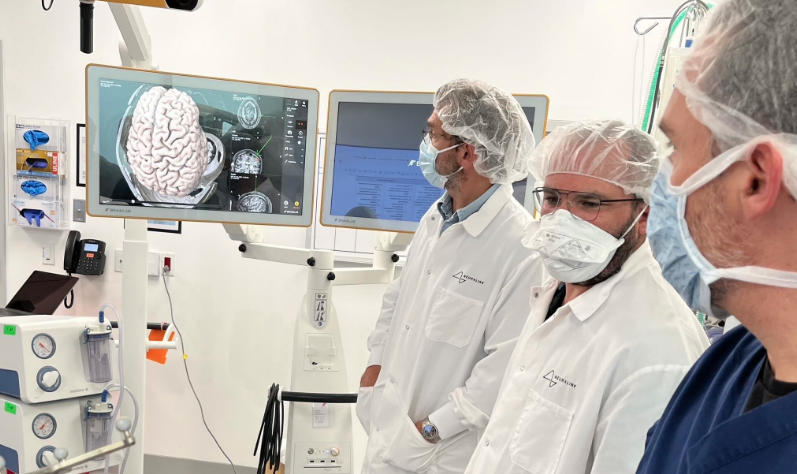Elon Musk, chief executive officer of X (formerly known as Twitter), says Neuralink, his company, has successfully implanted one of its wireless brain chips in a human for the first time ever.
Making the announcement in a post on X, Musk said the human who received the implant is recovering well.
“Initial results show promising neuron spike detection,” he wrote.
Spikes are activity by neurons, which are cells that use electrical and chemical signals to send information around the brain and to the body.
Advertisement
In another post on X, Musk said Neuralink’s first product would be called Telepathy.
He said Telepathy would enable “control of your phone or computer, and through them almost any device, just by thinking”.
“Initial users will be those who have lost the use of their limbs,” he said.
Advertisement
Referring to the late British scientist who had motor neurone disease, he added: “Imagine if Stephen Hawking could communicate faster than a speed typist or auctioneer. That is the goal”.
In May, the US Food and Drug Administration (FDA) gave the company clearance to conduct its first trial study to test its implant on humans.
Neuralink said “The PRIME Study”, short for ‘Precise Robotically Implanted Brain-Computer Interface’, is a groundbreaking investigational medical device trial for fully-implantable, wireless brain-computer interface (BCI).
It said the study aims to evaluate the safety of its implant and surgical robot and assess the initial functionality for enabling people with paralysis to control external devices with their thoughts.
Advertisement
“During the study, the R1 Robot will be used to surgically place the N1 Implant’s ultra-fine and flexible threads in a region of the brain that controls movement intention,” the company said in a statement in 2023.
“Once in place, the N1 Implant is cosmetically invisible and is intended to record and transmit brain signals wirelessly to an app that decodes movement intention.
“The initial goal of our BCI is to grant people the ability to control a computer cursor or keyboard using their thoughts alone.
“The PRIME Study is being conducted under the investigational device exemption (IDE) awarded by the FDA in May 2023 and represents an important step in our mission to create a generalized brain interface to restore autonomy to those with unmet medical needs.
Advertisement
“Those who have quadriplegia due to cervical spinal cord injury or amyotrophic lateral sclerosis (ALS) may qualify.”
Advertisement
Add a comment






